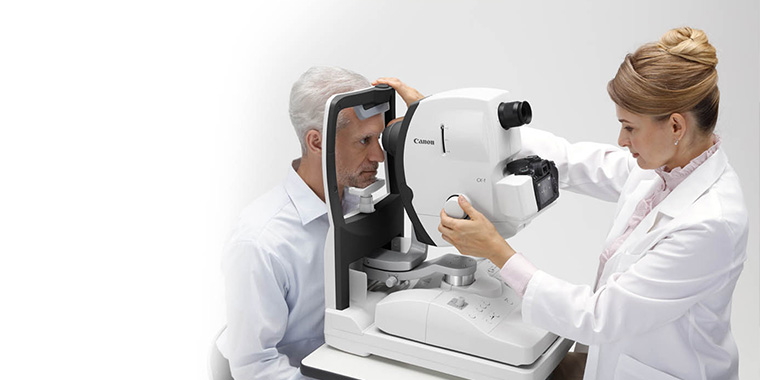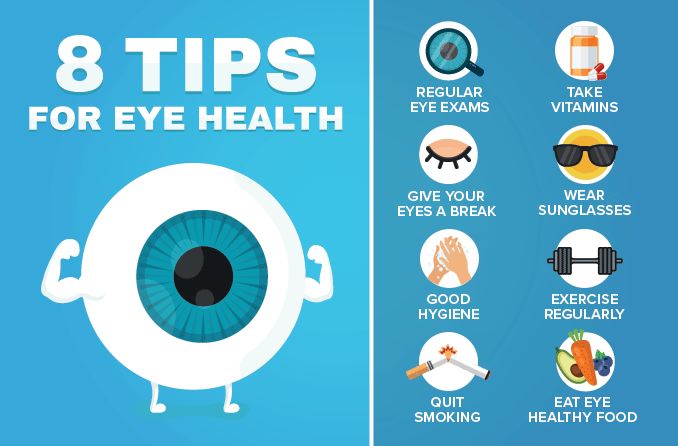Optometrist in Andalusia: Trusted Specialists for Vision Health
Optometrist in Andalusia: Trusted Specialists for Vision Health
Blog Article
Is Refractive Surgical Treatment Right for You? Factors to Take Into Consideration for Better Eyecare
In the world of eye care, the decision to go through refractive surgical procedure is a weighty one that demands thoughtful consideration. From the details of one's eye health to the complexities of day-to-day behaviors and individual assumptions, each facet holds value in the wider landscape of refractive surgical treatment candidacy.
Eye Health Assessment
When considering refractive surgical procedure, a detailed eye health and wellness evaluation is vital to assess the viability of the procedure for each and every individual. cardiologist andalusia. This analysis includes a series of evaluations and tests performed by an eye treatment professional to identify the general wellness of the eyes, the visibility of any hidden conditions, and the stability of the refractive error
During the assessment, numerous variables are taken into account, such as the patient's medical background, current eye prescription, corneal thickness, student dimension, and tear movie high quality. These assessments help to identify any contraindications to refractive surgery, such as corneal abnormalities, cataracts, or untreated eye infections. Furthermore, the examination helps to take care of individual expectations pertaining to the prospective results of the surgical procedure based on their distinct eye characteristics.
Inevitably, the eye health examination is vital in making certain the safety and security and performance of refractive surgical procedure, as it offers valuable insights right into the person's eye health and wellness condition and helps establish the most suitable therapy options for accomplishing optimal aesthetic outcomes. (andalusia pediatrics)
Lifestyle Assessment
A detailed lifestyle evaluation is important in figuring out the viability of refractive surgical treatment for a person's aesthetic correction requirements. Way of living aspects such as profession, leisure activities, and day-to-day tasks play a critical function in the decision-making procedure relating to refractive surgical treatment.
Furthermore, way of life habits such as sports engagement, outdoor activities, or even skin care regimens can affect the healing process and total success of refractive surgical procedure. By performing a comprehensive lifestyle evaluation, eye treatment experts can customize their recommendations and treatment strategies to meet the special needs of each patient, eventually leading to improved visual end results and satisfaction.
Assumption Alignment

People need to understand that while lots of individuals attain 20/20 vision or better complying with refractive surgical treatment, some might still call for glasses for specific activities like analysis or driving at night. Handling these assumptions helps avoid dissatisfaction and frustration post-surgery, leading to an extra favorable general experience for the person.
Risk Analysis

Factors that might increase the danger of issues consist of age, particular clinical problems like autoimmune illness, unsteady vision prescription, thin corneas, and impractical individual assumptions. Furthermore, selecting a knowledgeable and experienced cosmetic surgeon, adhering to pre and post-operative treatment guidelines vigilantly, and divulging any type of appropriate medical history can help reduce risks.
To lessen the likelihood of issues, ophthalmologists conduct detailed pre-operative evaluations to determine any contraindications to surgery. They also discuss the prospective threats and benefits with clients throughout the consultation procedure. By participating in open interaction and shared decision-making, both the eye doctor and the client can interact to establish if refractive surgical treatment is the appropriate option based upon specific risk accounts and preferred end results.
Appointment Value
Considering the crucial role of notified decision-making in examining dangers and possible complications in refractive surgical procedure, the appointment procedure holds considerable importance in directing patients in the direction of optimum results. During the consultation, the eye doctor examines the individual's eye health, refractive errors, and total suitability for surgical procedure. This preliminary evaluation is essential in identifying the most ideal procedure for each person, site here taking right into account aspects such as corneal thickness, student dimension, and existing eye conditions.
Furthermore, the consultation acts as a chance for individuals to discuss their expectations, issues, and any type of questions they might have pertaining to the surgery. Clear interaction in between the cosmetic surgeon and the client is necessary to ensure realistic expectations and a thorough understanding of the possible dangers and advantages included.
In addition, the assessment permits the surgeon to discuss the different surgical alternatives offered, their respective results, and the post-operative treatment called for. This detailed conversation empowers clients to make well-informed choices regarding their eye care, resulting in much better satisfaction and outcomes post-surgery.
Conclusion
To conclude, people considering refractive surgical treatment should undergo a detailed eye wellness examination, assess their way of living habits, align their expectations with potential end results, assess the affiliated dangers, and focus on consultations with eye care professionals. These variables play a critical try here duty in figuring out the suitability of refractive surgical treatment for each and every individual, guaranteeing optimal results and contentment with the procedure.
Clients thinking about refractive surgical procedure often have high expectations pertaining to the outcomes, anticipating ideal vision without the need for glasses or get in touch with lenses. While refractive surgical treatment can greatly boost vision and lower dependency on aesthetic help, it is essential for people to understand that results may vary based on private aspects such as the level of refractive mistake, corneal density, and total eye wellness.
By involving in open interaction and shared decision-making, both the individual and the ophthalmologist can function with each other to determine if refractive surgical treatment is the best choice based Recommended Reading on specific danger accounts and wanted outcomes.
Taking into consideration the critical function of informed decision-making in evaluating risks and prospective complications in refractive surgical procedure, the assessment process holds substantial importance in assisting clients towards ideal outcomes. During the appointment, the ophthalmologist evaluates the person's eye wellness, refractive errors, and overall viability for surgical procedure.
Report this page